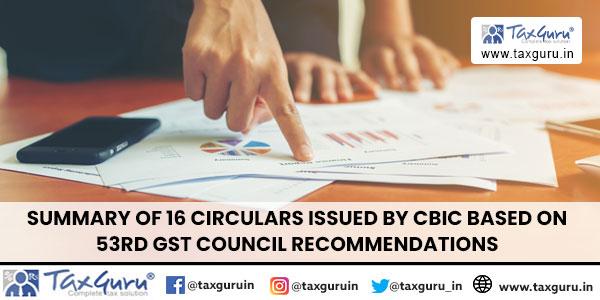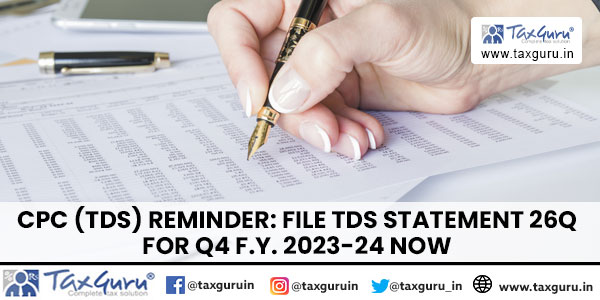Anil Kumar Popli, FCS
 Every company enters into related party transactions and every company has to comply with disclosure norms and provisions of the law. Basic purpose of regulations of related party provisions in the Company’s Act, 2013 (hereinafter referred to as `the Act’) is that no company or its directors should take undue benefit of relationship for their personal gain. The provisions of Companies Act, 1956 are to some extent hard for companies having paid up capital of Rupees One crore or more as they have to take prior approval of Central Government before entering into any related party transaction. The Companied had to approach concerned Regional Director with draft Agreement and other documents which process normally took place three to six months. Even in case of urgency the Company could not be able to make the transactions with related party due to these administrative hurdles. The introduction of Companies Act, 2013 is welcome step which removes these hurdles and make disclosure norms which enables the companies to make related party transactions in a smooth way. The Companies Act 2013 also removes the anomalies in definition of related party as it extends the definition which covers rendering of services, selling or disposing of property of any kind, leasing of property, appointment of related person on place of profit etc. This is also a welcome step. The new Act also relaxes the companies in case they enter into transactions in the ordinary course of business if done on arm’s length basis. However, there are certain practical difficulties in implementation which are discussed hereinbelow. The author analysis the provisions of related party transactions of new Act.
Every company enters into related party transactions and every company has to comply with disclosure norms and provisions of the law. Basic purpose of regulations of related party provisions in the Company’s Act, 2013 (hereinafter referred to as `the Act’) is that no company or its directors should take undue benefit of relationship for their personal gain. The provisions of Companies Act, 1956 are to some extent hard for companies having paid up capital of Rupees One crore or more as they have to take prior approval of Central Government before entering into any related party transaction. The Companied had to approach concerned Regional Director with draft Agreement and other documents which process normally took place three to six months. Even in case of urgency the Company could not be able to make the transactions with related party due to these administrative hurdles. The introduction of Companies Act, 2013 is welcome step which removes these hurdles and make disclosure norms which enables the companies to make related party transactions in a smooth way. The Companies Act 2013 also removes the anomalies in definition of related party as it extends the definition which covers rendering of services, selling or disposing of property of any kind, leasing of property, appointment of related person on place of profit etc. This is also a welcome step. The new Act also relaxes the companies in case they enter into transactions in the ordinary course of business if done on arm’s length basis. However, there are certain practical difficulties in implementation which are discussed hereinbelow. The author analysis the provisions of related party transactions of new Act.
Here, it is necessary to understood who is related party and who are the persons covered under the definition of related party.
Section 2(76) “related party”, with reference to a company, means—
(i) a director or his relative;
(ii) a key managerial personnel or his relative;
(iii) a firm, in which a director, manager or his relative is a partner;
(iv) a private company in which a director or manager is a member or director;
(v) a public company in which a director or manager is a director or holds along with his relatives, more than two per cent of its paid-up share capital;
(vi) any body corporate whose Board of Directors, managing director or manager is accustomed to act in accordance with the advice, directions or instructions of a director or manager;
(vii) any person on whose advice, directions or instructions a director or manager is accustomed to act:
Provided that nothing in sub-clauses (vi) and (vii) shall apply to the advice, directions or instructions given in a professional capacity;
(viii) any company which is—
(A) a holding, subsidiary or an associate company of such company; or
(B) a subsidiary of a holding company to which it is also a subsidiary;
(ix) such other person as may be prescribed;
This definition is wider than the definition of erstwhile Act. The relative of key managerial person, persons accustomed to act on directors, associate company etc. are new provisions which is also a good step to plug the loop holes.
Section 2(77) ‘‘relative’’, with reference to any person, means anyone who is related to another, if—
(i) they are members of a Hindu Undivided Family;
(ii) they are husband and wife; or
(iii) one person is related to the other in such manner as may be prescribed;
Besides above, the following are considered relative(s) including the step relationship
Father,
Mother,
Son
Son’s wife
Daughter
Daughter’s husband
Brother
Sister
As per rule 2 (e) of Companies (Meetings of Board and its Powers) Rules, 2014. “Related party” means a director or key managerial personnel of the holding company or his relative with reference to a company, shall be deemed to be a related party.
The number of relatives comparing list given in the erstwhile Act have been reduced which is also a welcome step. However, there is one practical problem with directors in knowing the firms or companies or percentage of holding in which their relatives are interested. Now a days, persons are keeping a secret of certain investments and interest being made public and even shy in disclosing it to close relatives and in some circumstances person may have differences with his relative. In such eventuality, how a person can disclose his interest through relative. In case a person/director do not disclose his interest through relative, it is terms as an offence and liable for punishment under the provisions. In such circumstances, it is the duty of every director to declare clearly that he does not know the interest of such relative with whom he has no relation or the names of relatives with whom his relations are strained. On prior disclosure of these things can save himself from penal provisions.
As per section 2(49) “interested director” means a director who is in any way, whether by himself or through any of his relatives or firm, body corporate or other association of individuals in which he or any of his relatives is a partner, director or a member, interested in a contract or arrangement, or proposed contract or arrangement, entered into or to be entered into by or on behalf of a company;
As per section 184(1) every director is required to disclose his interest in other Companies, firms and also to disclose his shareholding above 2% in such company in form MBP-1. As per section 117 read with Section 179(3) and the rules framed thereunder, the Companies are also required to file MBP-1 form with the office of Registrar of Companies in form MGT-14 within 30 days from the date of Board Meeting. Further, as per section 184(2) every director who is interested directly or indirectly has to give disclosure in respect of contract or arrangement with body corporate in which such director or such director in association with any other director, holds more than two per cent shareholding of that body corporate, or is a promoter, manager, Chief Executive Officer of that body corporate, or with a firm or other entity in which such director is a partner, owner or member, as the case may be.
Now, every director has to give disclosure of interest in two ways i.e. one under Section 184(1) in MBT -1 form and another under section 184(2) to company with list of relatives, names of firms, shareholding more than 2% and also shareholding more than 2% in association with any other director.
Here director in association with other directors is a new provision. Earlier the holding was inclusive of shareholding together with relatives which has now been extended together with other directors.
In earlier Act, related party transactions entered into between two Public Limited Companies were exempt from the provisions of the Act, has now been deleted. Now, private and Limited both are both on equal footing with respect to related party transactions.
While dealing with the Companies, the shareholding of 2% (two percent) or more has paramount importance. In case the director holds less than two per cent holding, as per the explanation given, it is not considered as interest and the company can enter into transaction. The author is of the view that one should consider the calculation of two per cent holding together with relatives and other directors also.
However, there is a contradiction in holding. At one side at clause 2(76)(iv) in case of private limited company if a director is a director or a member in another Company, it is considered as a related party transaction whereas the rules provide in case the shareholding is less than two percent it should not be considered. The inference of clause 2(76)(iv) is that in case a director holds even a single share in another private limited company, it is covered under related party. Further, while dealing with Limited Company, it is clear under clause 2(76)(v) that in case the director along with his relatives together holds more than two percent holding, it is covered under related party transactions, and the company has to comply the provisions.
The author is of the view that in case of entering into transactions with a private limited, in such case director is a director or even holds a single share (even below two percent) the company has to comply with the provisions.
Related party transactions
The related party transactions earlier relates to sale, purchase or supply of any goods or materials which has now been extended to
(a) sale, purchase or supply of any goods or materials
(b) Selling or otherwise disposing of, or buying, property of any kind;
( c) Leasing of property of any kind
(d) Availing or rendering of any services;
(e) Appointment of any agent for purchase or sale of goods, materials, services or property;
(f) Such related party’s appointment to any office or place of profit in the company, its subsidiary company or associate company; and
(g) Underwriting the subscription of any securities or derivatives thereof, of the company
Consent of Board of Directors through a specific resolution is required for entering into the transaction.
As per rule 15 of Companies (Meetings of Board and its Powers) Rules, 2014 notified w.e.f.Ist April 2014, the Agenda of Board Meeting should disclose the following points specifically:
(a) the name of the related party and nature of relationship;
(b) the nature, duration of the contract and particulars of the contract or arrangement;
(c) the material terms of the contract or arrangement including the value, if any;
(d) any advance paid or received for the contract or arrangement, if any;
(e) the manner of determining the pricing and other commercial terms, both included as part of contract and not considered as part of the contract;
(f) whether all factors relevant to the contract have been considered, if not, the details of factors not considered with the rationale for not considering those factors; and
(g) any other information relevant or important for the Board to take a decision on the proposed transaction.
Where any director is interested in any contract or arrangement with a related party, such director shall not be present at the meeting during discussions on the subject matter of the resolution relating to such contract or arrangement-
The disclosure norms are the key for entering into transactions. The main difficulty for companies is that in India most of Companies are closely held which family operated companies. Such companies cannot pass the related party transactions in Board Meeting as there is no requisite uninterested quorum.As such, family based Companies have to consider appointment of independent directors otherwise they will face difficulty in passing the resolution.
The provisions of new Act also fixes the limits based on net worth and annual turnover of the company whereby the Board of Directors can approve and on exceeding the limit, the Companies have to pass special resolution before entering into related party transaction.
As per provisions of first proviso to sub-section (1) of section 188, except with the prior approval of the company by a special resolution-
(i) a company having a paid-up share capital of ten crore rupees or more shall not enter into a contract or arrangement with any related party; or
(ii) a company shall not enter into a transaction or transactions, where the transaction or transactions to be entered into –
(a) as contracts or arrangements with respect to clauses (a) to (e) of sub-section (1) of section 188 with criteria, as mentioned below –
(i) sale, purchase or supply of any goods or materials directly or through appointment of agents exceeding twenty five percent of the annual turnover as mentioned in clause (a) and clause (e) respectively of sub-section (1) of section 188;
(ii) selling or otherwise disposing of, or buying, property of any kind directly or through appointment of agents exceeding ten percent. of net worth as mentioned in clause (b) and clause (e) respectively of sub-section (1) of section 188;
(iii) leasing of property of any kind exceeding ten percent. of the net worth or exceeding ten percent. of turnover as mentioned in clause (c) of sub-section (1) of section 188;
(iv) availing or rendering of any services directly or through appointment of agents exceeding ten percent. of the net worth as mentioned in clause (d) and clause (e) of sub-section (1) of section 188;
(b) appointment to any office or place of profit in the company, its subsidiary company or associate company at a monthly remuneration exceeding two and half lakh rupees as mentioned in clause (f) of sub-section (1) of section 188; or
(c) remuneration for underwriting the subscription of any securities or derivatives thereof of the company exceeding one percent. of the net worth as mentioned in clause (g) of sub-section (1) of section 188.
Explanation. – (1) The Turnover or Net Worth referred in the above sub-rules shall be on the basis of the Audited Financial Statement of the preceding Financial year.
(2) In case of wholly owned subsidiary, the special resolution passed by the holding company shall be sufficient for the purpose of entering into the transactions between wholly owned subsidiary and holding company.
(3) The explanatory statement to be annexed to the notice of a general meeting convened pursuant to section 101 shall contain the following particulars namely:-
(a) name of the related party ;
(b) name of the director or key managerial personnel who is related, if any;
(c) nature of relationship;
(d) nature, material terms, monetary value and particulars of the contract or arrangement;
(e) any other information relevant or important for the members to take a decision on the proposed resolution.
The new Act requires approval of members by passing special resolution in case their paid up capital exceeds Rupees Ten Crore or more. For companies having paid up share capital below Rupees Ten Crore, can pass the resolution through Board subject to limits upto twenty five percent of annual turnover in case of sale, purchase of goods and material; upto ten per cent of net worth in case of dealing in property etc. as mentioned hereinabove and on exceeding the limit they have to seek approval of members by passing special resolution. Here also the member interested in the resolution cannot vote on the resolution. However, no central Government permission is required. The new Act has not given any solution or remedy if all the board members are interested and similarly all members are interested and there is no requisite uninterested quorum. In such situation there is no remedy available with the Company except to appoint independent directors or non related members as the case may be.
TRANSACTIONS ON ARM’S LENGTH BASIS
The most welcome part of related party is exemption to transactions which are made in the ordinary course of business made on arm’s length basis. The proviso is reproduced below:
“Provided also nothing in this sub-section shall apply to any transactions entered into by the company in its ordinary course of business other than transactions which are not on an arms’ length basis.”
The explanation in this sub-section states
(b) the expression “arm’s length transaction” means a transaction between two related parties that is conducted as if they were unrelated, so that there is no conflict of interest.
The onus to prove that the particular transaction is on arm’s length basis is on the Company. The Companies (both private and Limited and even listed Companies) can avail the benefit of these provisions. The ordinary course of business means the Company regularly carries on business or regularly trades in such field. Arm’s length basis means the transactions should be independent and is being done on same terms and conditions as if done with some unrelated party.
Since the provisions of Section 188(1) of the Act are not applicable to transactions made on arms’ length basis, as such, the author is of the view that the Companies are also not required to approve the transaction in the Board meeting or pass the special resolution. However, the Companies are required to make entries in the register maintained under format MBP-4.
TRANSACTIONS BETWEEN HOLDING AND WHOLLY OWNED SUBSIDARY COMPANY
As per rule 15(2) of Companies (Meetings of Board and its Powers) Rules, 2014, in case the Holding Company passes the special resolution in respect of related party transaction with its wholly owned subsidiary company, then it shall be sufficient compliance. Sub-rule (2) is reproduced below:
(2) In case of wholly owned subsidiary, the special resolution passed by the holding company shall be sufficient for the purpose of entering into the transactions between wholly owned subsidiary and holding company.
The author is of the view that no other compliance is required where holding company passes the special resolution and even the restriction that the related party cannot vote is also not applicable. This is also a welcome step.
However, in respect of transactions with subsidiary and associate company, both the companies have to pass the resolution in Board Meeting by independent directors. Thus, for making related party transactions with subsidiary or associate company, a care should be taken that there are sufficient number of independent directors in holding as well as in subsidiary or associate company.
DISCLOSURE IN BOARD REPORT
Pursuant to the provisions of Section 134(3)(h) of the Act, the Company is also required to disclose the particulars of contract or arrangement with related parties in the Board of Director’s report which was not earlier required.
PENALTY
In case any Director acts in contravention of provisions of Section 184 of the Act or fails to disclose his interest in the proposed contract or arrangement, such director shall be deemed to vacate his office automatically under the provisions of Section 167(1) © and (d) of the Act.
As per provisions of Section 188(5) in case any director or any other employee of a Company who had entered into or authorized the contract or arrangement (including Key managerial person and Chief Executive Officer) in violation of provisions of this Section shall be liable for punishment with imprisonment for a term which may extend to one year or with fine which shall not be less than twenty five thousand rupees but which may extend to five lakh rupees or both in case of listed companies and in case of other companies, be punishable with a fine which shall not be less than twenty five thousand rupees but which may extend to five lakh rupees.
CONCLUSION
The author is of the view that the new provisions are welcome step and more flexible and in line with corporate need. The removal of central government permission and introduction of entering transactions on arm’s length basis are boosting factors for the industry.
(Author – Anil Kumar Popli, FCS, LLB is a Company Secretary in Practise from Delhi and can be contacted at akpopli@rediffmail.com)




























THANKS ALOT FOR SUCH A NICE SHARING
Hi sana,
No we dont need to maintain two forms.
there is no form like mbt-1 in companies act 2013.
there is only one form i.e. MBP-1
Really very nice discription for all about RPT..Thanx a Lot…
Hello Anil Sir,
I just need to clarify. We need to maintain two forms, namely, MBP-1 and MBT-1. As interpreted from the following two paragraph:
As per section 184(1) every director is required to disclose his interest in other Companies, firms and also to disclose his shareholding above 2% in such company in form MBP-1.
Now, every director has to give disclosure of interest in two ways i.e. one under Section 184(1) in MBT -1 form and another under section 184(2) to company with list of relatives, names of firms, shareholding more than 2% and also shareholding more than 2% in association with any other director.
Kindly comment. As Form MBP-1 is for disclosure. What MBT-1 is for?
Truly informative n worth reading
Thanks a tonne.
It will help a lot.